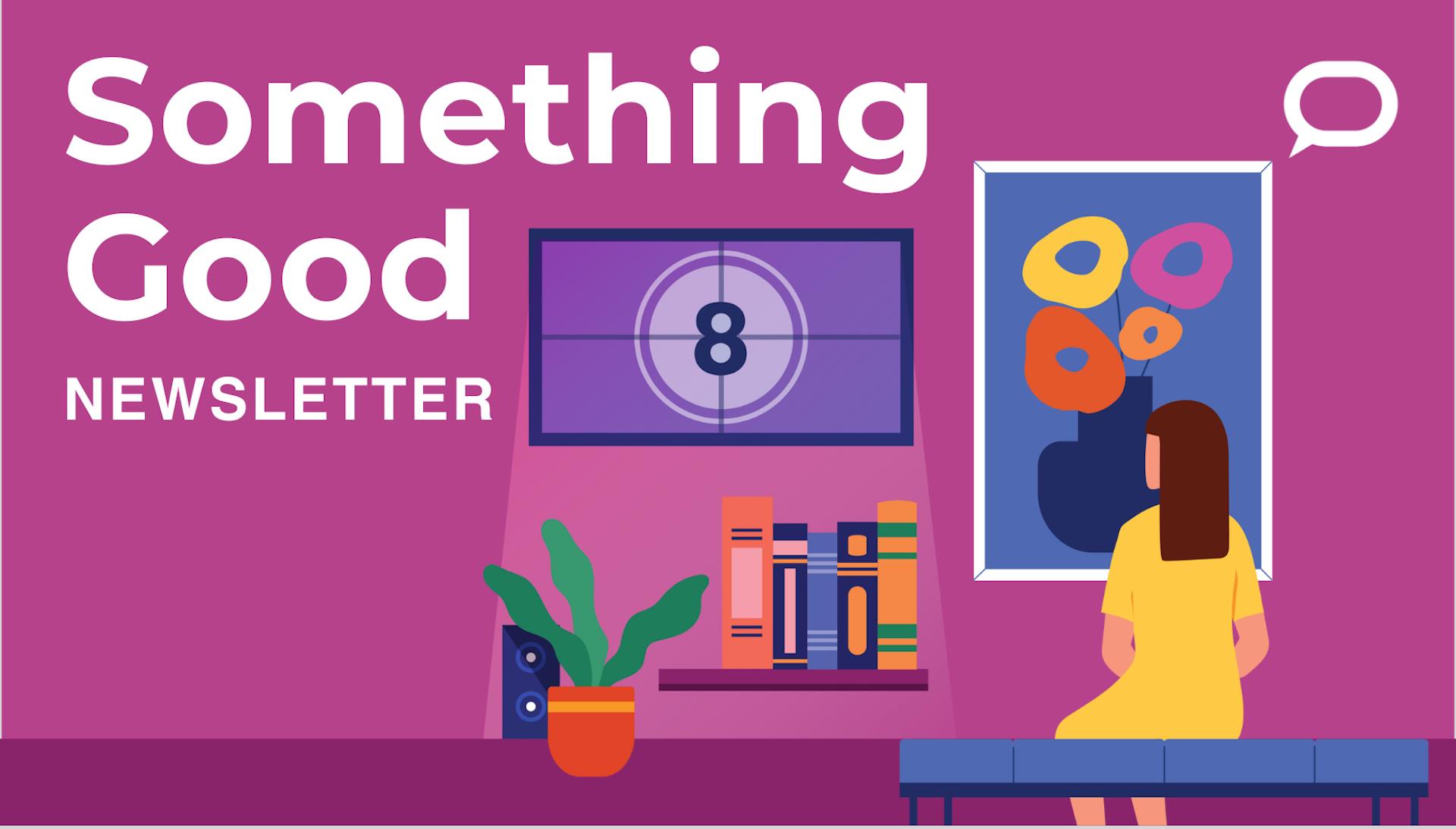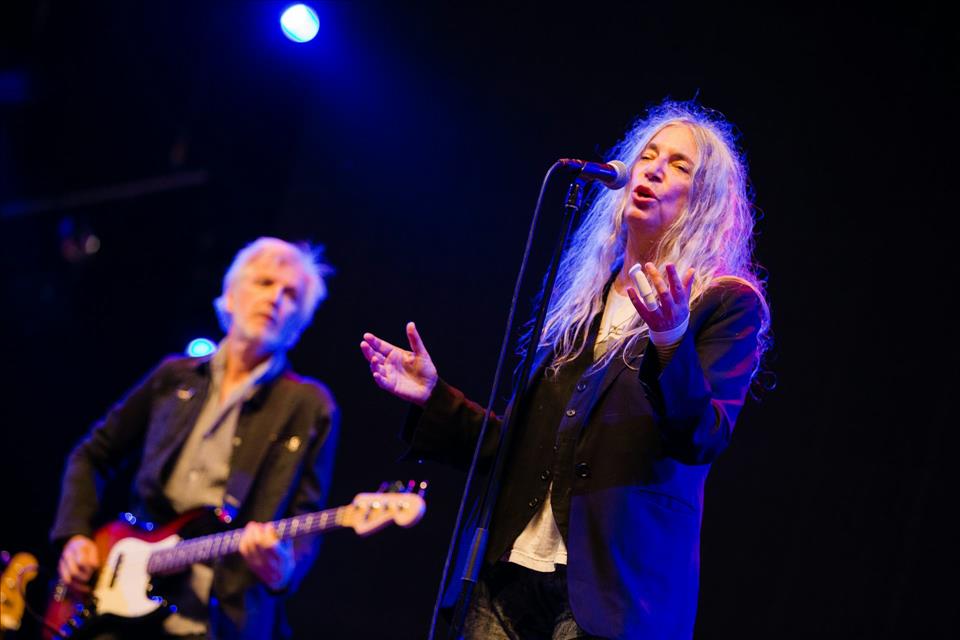
Horses At 50: Three Reasons Why Patti Smith Still Cuts To The Bone
I desperately want to convince you to listen to this album and to see her perform, as if your life depends on it. I want you to tremble under her spell. I recognise this aim suggests a certain level of bias, but I actually don't consider myself a“super-fan”.
I have seen Smith several times across a significant amount of time, which should allow me to offer some insights about her work. I first saw her perform in 2000, when I was 14 years old. I saw her again on New Year's Eve in 2011 at the Bowery Ballroom in NYC, and in London in 2015 and 2018. I've read her first memoir, Just Kids (her third, Bread of Angels is published this week). But I can't recount her life story. I just think she's cool as hell.
I clarify the particular angles of my vantage point to emphasise that the urgency and embrace I'm encouraging here, and indeed the transformation I'm just shy of promising, still feels quite measured. As someone who examines queer and feminist performance for a living, I've given it some thought: Patti Smith still cuts to the bone.
This is for a variety of reasons, but in my campaign to compel a new audience to her and perhaps galvanise some shared feelings among her existing appreciators, I'll elaborate on three.
1. A sense of magic and incantationSeriously: magic and incantation. I have a friend who immediately chants:“Horses! Horses!” whenever actual horses come up in conversation, regardless of context. The delivery is reminiscent of Smith's on what I consider to be the title track of Horses (the actual title is the poetic, if longwinded: Land: Horses/Land of a Thousand Dances/La Mer[de]).
The song physically moves me. I nod my head and lift my heel, then drop it on the down beat and it feels good. I'm in it. It's in me. These are the aftershocks of possession. These songs have been put in us, along with a heat – I think the literal friction of joy and pleasure being stirred in us as we listen or recite.
What I'm describing relies on Smith's singular way of building a sonic momentum. The rhythm, dynamics and crooked jangly tones of the guitar at times seem to competitively race the drums.
On Birdland, this black magic swells through pounding eighth notes on a slightly out-of-tune piano that collide with waves and washes of distorted guitar as Smith seems to chase words out of her mouth – poetry that rattles out breathlessly like a cautionary sermon:“White lids, white opals, seeing everything just a little bit too clearly. And he looked around and there was no black ship in sight. No black funeral cars, nothing except him the raven.”
I will acknowledge here her long-time guitarist and co-writer, Lenny Kaye, drummer Jay Dee Daugherty, Horses bassist Ivan Král, and the album's producer, John Cale – formerly of the Velvet Underground. But the brutal thrash of affect comes directly from Smith, and is more potent live than you could ever imagine from listening to the records alone.
I have been so overwhelmed by her spasm, the vibration of her bones, I worried her heart would explode. Through lyrical and rhythmic incantation, her music produces a trance, and she gets there, with you. This feels most dangerous and is most totally levelling when she performs Gloria: In Excelsis Duo.
It is an adaptation of Van Morrison's Gloria, her best-known song next to her Bruce Springsteen collaboration, Because the Night, and one I couldn't get past when I first heard Horses 26 years ago. I just kept playing it over and over and over. I still can't listen to it just once. This song leads me to my second point though – the second reason Horses is so raw and compelling.
2. Sexuality and sensualityIt's all over. It's prismatic. It's her cool masculine dress – her blazers paired with collared shirts or ripped cotton Ts – and her wiry, slinky form. It's in the enveloping reggae sway of Redondo Beach. It's the nakedness and aesthetics of her lyrics. It's in the words – the story – but it's in the horny, desperate, silky sounds she makes too, and how she signals sex with lewd, obvious motions.
In Gloria, she grunts, hisses, and does these snarling, vocal flips that play at the edges of the ecstatic with a delicate control, before she eventually just completely loses it as she describes the character of Gloria getting physically closer, walking toward the male character whom Smith has occupied, and psychically penetrated and exposed.
As she spells out Gloria's name, she leans in gutturally to the“O” with an“Ohhhhh” and reduces the“R” to an“Ahhhhh”, slowing everything down to the vowels of sexual moaning, before speeding right back up, repeating in a raging, choral freakout: G-L-O-R-I-A!
3. Showing upMy final point is based on something Smith wailed the first time I saw her. She was getting totally worked up, shaking, freaking out, and started intoning:“I forget the words! I forget the words!”. She seemed totally lost and upset, grumbling in non-word noise for a bit before something emerged:“You better... you better... you better take care of your teeth for when the revolution comes!”
I was absolutely certain that she was having a psychotic episode. But, she said it again when I saw her in 2018, and when asked in a recent TV interview if she had any advice for young people, she repeated:“Take care of your teeth” (along with the self-deprecating:“Don't listen to me”).
I think she does mean this literally, but also that you have to keep showing up: taking care of yourself, and contributing in small or even mundane ways to bigger things – stay creative, keep making art.
Smith has continued to write music, books and poetry, and tour and perform with the same shocking level of intensity past the peak of her commercial success. She has also continued to collaborate and engage with contemporary music. When I first saw her in 2000 a still-emerging version of the now legendary feminist punk band, Sleater Kinney opened her show, and Smith covered Heart Shaped Box by Nirvana.
Just this week, Rosalía, one of the biggest contemporary pop acts, included a clip of Smith from an interview in 1976 on her new song, La Yugular. Smith speaks about“breaking through” doors, and into levels of heaven, but says you have to keep breaking through:“One door isn't enough. A million doors aren't enough.”
This is the spirit that runs through Horses, through Patti Smith's entire oeuvre, and has made her a lasting, powerful presence.

Looking for something good? Cut through the noise with a carefully curated selection of the latest releases, live events and exhibitions, straight to your inbox every fortnight, on Fridays. Sign up here.
This article features references to books that have been included for editorial reasons, and may contain links to bookshop. If you click on one of the links and go on to buy something, The Conversation UK may earn a commission.

Legal Disclaimer:
MENAFN provides the
information “as is” without warranty of any kind. We do not accept
any responsibility or liability for the accuracy, content, images,
videos, licenses, completeness, legality, or reliability of the information
contained in this article. If you have any complaints or copyright
issues related to this article, kindly contact the provider above.


















Comments
No comment